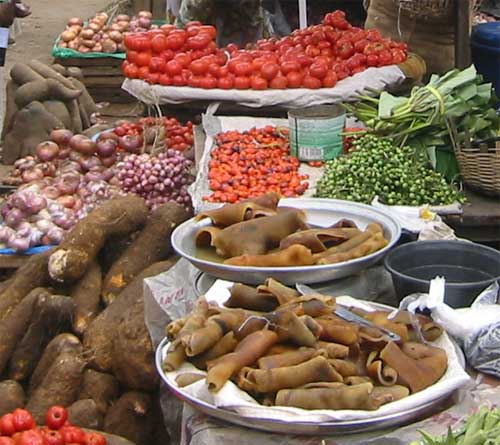An economist, Adedayo Aregbesola, says the FOREX ban on food items was expected to lead to shortage of food, noting that Nigeria still lacks the capacity to feed her population.
Adedayo disclosed this on Friday while reacting to the rise in prices of food items, especially rice within the last three months following closure of Nigeria’s land borders with neighbouring countries.
The price of a bag of 50 kilogrammes of locally produced rice has gone up from N13,500 to N25,000 in the market within the last three months. Similarly, a carton of frozen fish has jumped from N10,000 to 25,000 or 60%, while turkey, which was N13,000 as at August 19, 2019, has increased by 38.4% to N18,000.
He maintained that in any given circumstance, inflation is imminent, should plenty of money be chasing few food items in the market.
Aregbesola added, “Going by the law of demand and supply, if there is plenty of food, people will buy cheaper food and if there is scarcity of food they will be forced to spend more money on few food items and this will further lead to crisis.”
Also, the Managing Director of Sceptre, Olatunde Jayeola, explained that the government should have pumped more money into the agricultural sector and subsidised food items in such a way that foreign parboiled rice being smuggled would be useless.
Jayeola’s words: “If the local rice is sold at N5,000 per 50 kilogrammes bag in the market, no smuggler will go to neighbouring countries to bring rice at a landing price of N9,000 per 50 kilogrammes bag because it is not economically reasonable to do that in a competitive market.
“The Central Bank of Nigeria (CBN) should also focus on bringing agricultural equipment into the country and distribute them to farmers. This will make the bank’s anchor borrower scheme more meaningful.”
Recall that President Muhammadu Buhari-led administration had in October 2019, closed the country’s land borders to imported goods.
According to the president, the closure of the borders was due to the smuggling activities of food items, particularly, that of rice.
Nigeria has recorded N338.6 billion shortage of rice at the Malaysian price of $421 per tonne. This follows the country’s land border closure and the government’s decision to stop FOREX on food imports.
While production stands at 60,000 tonnes, Nigeria is in deficit of 5.1 million tonnes of wheat. More so, sugar deficit has reached 1.89 million tonnes, as production declined from 80,000 tonnes in 2018 to 75,000 tonnes this year (2019). Palm oil shortage attains 350,000 tonnes, as local production remains unchanged at 1.02 million tonnes.


 Health1 week ago
Health1 week ago
 Business1 week ago
Business1 week ago
 Latest1 week ago
Latest1 week ago
 Latest1 week ago
Latest1 week ago
 Health6 days ago
Health6 days ago
 Football7 days ago
Football7 days ago
 Crime7 days ago
Crime7 days ago
 Latest1 week ago
Latest1 week ago
